THE PSYCHOLOGY TO FREEDOM
Are you ready to escape the prison of your own mind?
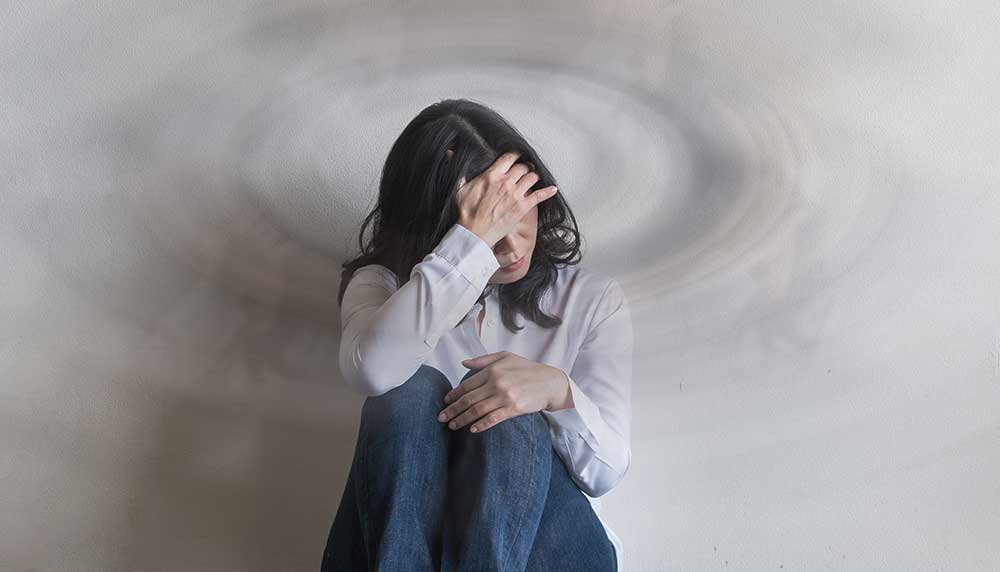
We can be our own jailers or we can be our own liberators, which one would you choose?
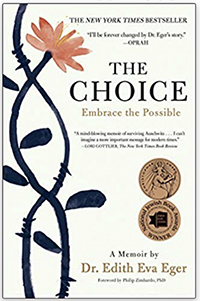 As I read the following quote from Dr. Edith Eva Eger’s book; The Choice, Embrace the Possible, I felt an immediate sense of empowerment because as a Holocaust survivor who endured unspeakable horrors and brutality, Dr. Eger decided to transform her suffering into a powerful gift—one she uses to help others heal.
As I read the following quote from Dr. Edith Eva Eger’s book; The Choice, Embrace the Possible, I felt an immediate sense of empowerment because as a Holocaust survivor who endured unspeakable horrors and brutality, Dr. Eger decided to transform her suffering into a powerful gift—one she uses to help others heal.
“The most important truth I know is that the biggest prison is in your own mind, and in your pocket you already hold the key: the willingness to take absolute responsibility for your life; the willingness to risk; the willingness to release yourself from judgment and reclaim your innocence, accepting and loving yourself for who you REALLY are—-human, imperfect and whole.”
Dr. Eger found true freedom and forgiveness and shows us how we can as well. Her incredible journey and victory of the human soul over the pain of human degradation will truly inspire anyone who reads her mind-blowing memoir.
The Choice, brings a universal message of hope and possibility to everyone who is trying to free themselves from pain and suffering.
Whether imprisoned by a bad marriage, a destructive family, or a job you despise or imprisoned within the barbed wire of your own self-limiting beliefs that trap your mind, you will learn from her story that you can choose to embrace joy and freedom regardless of your circumstances.
My intention for 2020 is to share stories on my blog that will hopefully speak to the person who is reading it in their own individual and unique way.
I am offering what I feel are the most compelling lessons we all are able to learn from Dr. Edith Eger.
As Dr. Eger’s family was entering the gates of the Nazi concentration, camp Auschwitz, they were immediately separated.
Her father went into one line and she, her mother, and her sister in another. As they stood in front of Dr. Josef Mengele, the infamous “Angel of Death”, he looked at them and asked if they were sisters. Dr. Eger told him that one was their mother, and her mother was immediately pushed into another line; the one for the gas chamber.
The last thing her mother said to them was, “Just remember, no one can take away from you what you have put in your mind.”
The author Viktor Frankl, wrote The Search For Man’s Meaning about his concentration camp experience, and the very heart of his teaching is so similar, as he wrote: “Everything can be taken from a man but one thing: the last of his human freedoms—to choose one’s attitude in any given set of circumstances, to choose one’s own way.”
Each moment is a choice no matter how frustrating or boring or painful or oppressive our experience, we can always choose how to respond.
We all have the freedom to choose our own response to any situation.
After barely surviving the concentration camps, Dr. Eger’s moved to the United States and began her education to become a psychologist. She married and had three children, but something still didn’t feel right.
She really wanted to transcend the perceived limitations imposed on her and as she found out later those limitations where coming from within herself.
She would have flashbacks that she didn’t understand and her body would send her a reminder of the feelings that she blocked from her conscious life. “As a storm that assaults me when I deny myself permission to feel.”
A good question to journal about here is: What are my disowned feelings?
Dr. Eger divorced her husband and explains that it didn’t liberate her from the uneasy presence of her feelings, it actually forced her to sit alone with them because there wasn’t anyone to blame or resent. The only true gift was she had to face what was inside of her.
Years went by until and eventually she and her husband decided to get back together.
What did she learn?
She had to discover that there is no WE until there is an I.
She realized that her marriage wasn’t a sign that something was wrong in the relationship, it was the void she carried with her, even now, the void NO ONE will ever fill.
She decided that no one else was responsible for her freedom but her!
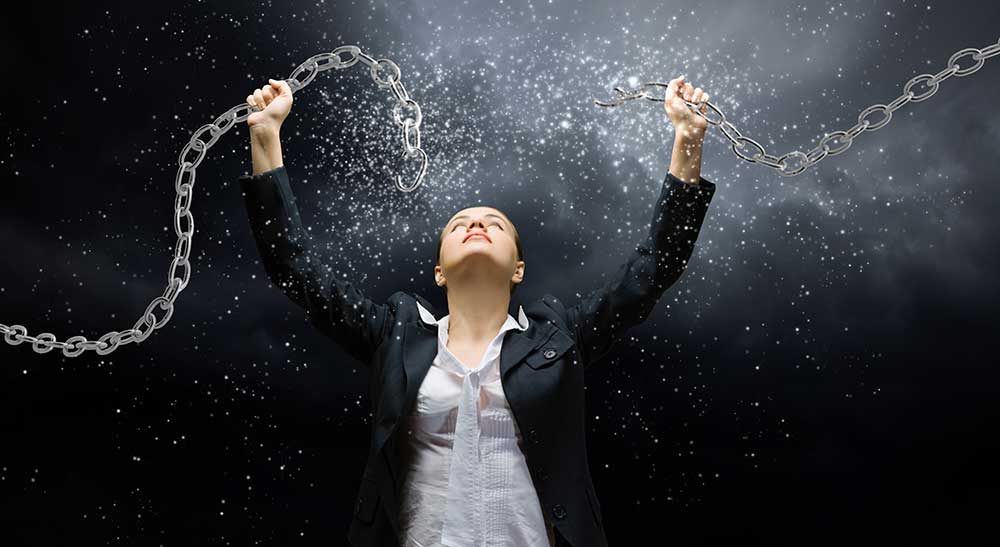
She writes about the famous Dr. Seligman’s (the father of Positive Psychology) experiment which concludes that when we feel we have no control over our circumstances when we believe that nothing we do will alleviate our suffering or improve our lives, we stop taking action on our own behalf because we believe there is no point.
Frankl also agrees with this by writing, “Even after you are liberated and released it isn’t the end of imprisonment, it can continue in the bitterness, disillusionment, a struggle for meaning and happiness. We usually try VERY hard to hide this part of ourselves.”
Suffering is inevitable and universal; it is how we respond to it that makes all the difference.
Suffering is the belief that discomfort, mistakes, and disappointments signal something about our worth.
This usually begins with our belief about who we are in our daily lives. The BELIEF determines our FEELINGS (sadness, anger, anxiety etc,.) and then our feelings, in turn, influence our BEHAVIOR (acting out, shutting down, self-medicating to ease the discomfort.)
To change our BEHAVIOR, we must change our FEELINGS, and, change our THOUGHTS.
A good example is when a woman goes out on a date and she is shy and tense so she behaves in a guarded manner, masking her true self and thinking, “I will never be happy.”
It is her feeling FEAR that is triggered by her BELIEF (she won’t be happy) which makes it more likely that her self-defeating thought might come true.
Changing your core belief system is crucial if you want to achieve freedom!
Self-acceptance is the hardest part of the healing process.
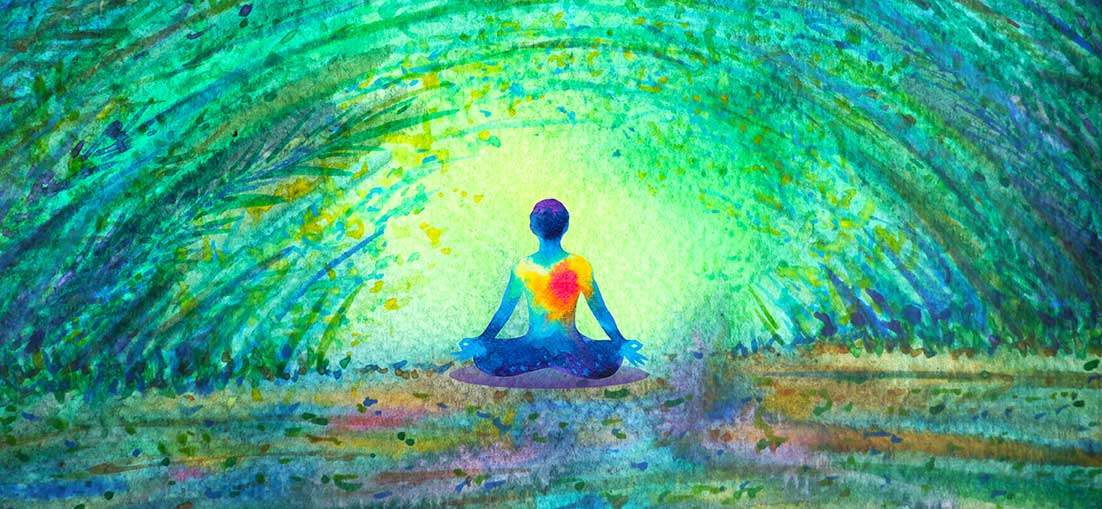
Remember perfectionism doesn’t exist, it is the BELIEF that something is broken—and that something is YOU. So, we all try dressing it up to make ourselves look like we have it all together which really reinforces the sense we are not worthy.
Some of our self-defeating behaviors first emerged as useful behaviors, things we did to satisfy a need, usually the need for approval, affection or attention.
Once we see why we developed a certain behavior we are able to take responsibility for whether or not we want to maintain it or give it up!
We can learn to take better care of ourselves and understand freedom doesn’t come for free, we have to work at it… remember this:
Only I can do what I can do the way I can do it.
Why are people unhappy?
We are either taking on too much responsibility or we are taking too little.
Instead of being assertive and choosing clearly for ourselves, we might become aggressive (choosing for others), or passive (letting others choose for us), or passive-aggressive (choosing for others by preventing them from achieving what they are choosing for themselves).
We avoid responsibility for making our own joy!
Instead of thinking, “I want” or “I am,” consider the following questions you could ask yourself. Writing this down could help liberate you from victimhood.
- What do I want? Give yourself permission to know and listen to yourself, and align yourself with those desires. How often when you answer this question do you say what you want for someone else?
- Who wants it? This is our charge and our struggle: to understand your own expectations for yourself versus trying to live up to others’ expectations. It is your responsibility to act in service to your authentic self. This might mean giving up the need to please or the approval of others.
- What are you going to do about it? I believe in the power of positive thinking, but change and freedom also require positive action! Anything you practice you will become better at. If you practice fear, you will get more fear, (sometimes we work very hard to ensure we don’t get anywhere). Change is about noticing what is no longer working for you and stepping out of your imprisoned patterns.
- When? If you want to evolve instead of revolve, it is time to take action now!
Remember, it is not what is happening on the OUTSIDE that matters, it’s what is happening on the INSIDE.
Where does your power reside?
Are you waiting on the world to change or are you going to find your inner strength, your inner truth and believe that YOU have the POWER to CHOOSE?
Freedom lies in examining the choices available and examining the consequences of those choices.
Strength isn’t reacting, it is responding—feeling your feelings, thinking them through and planning an effective action plan to bring you closer to becoming the authentic person waiting inside of YOU!
I hope you have found something that you can use in your life to help you become the very best YOU!
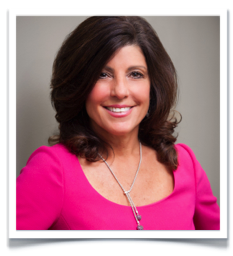
Maria Bucci, M.Ed LPC DWC-F. Daring Way Facilitator by Dr. Brené Brown


Leave a Reply